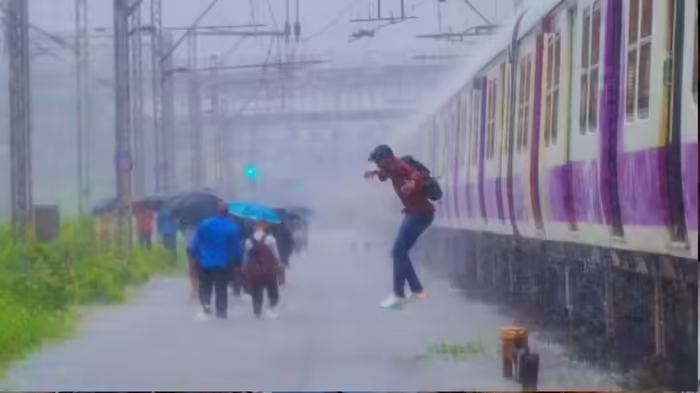
Thane (Maharashtra): In a first-of-its-kind move in Indian Railways’ history, the Government Railway Police (GRP) has filed an FIR against two Central Railway engineers over alleged negligence that led to a tragic train accident near Mumbra station in Thane district on June 9. The mishap claimed four lives and left nine passengers injured when two overcrowded local trains crossed each other on a sharp curve between Diva and Mumbra stations.
Engineers Booked for Negligence
According to officials, the Assistant Divisional Engineer Vishal Dolas and Senior Section Engineer Samar Yadav have been named as the main accused in the case. They are charged with ignoring prior warnings, failing to carry out critical maintenance, and leaving the tracks unsafe, which allegedly led to the accident.
Prior to the incident, Mumbra station authorities had alerted the Thane Engineering Department about minor ballast displacement under tracks on Platforms 3 and 4 due to heavy rainfall. However, despite receiving the alert, no timely corrective action was taken.
What Happened on June 9
During the incident, two local trains were crossing each other on a tight curve when some passengers hanging on the footboards lost balance after their bags collided, causing them to fall onto the tracks. The victims were crushed under the moving trains.
A special investigation team led by ACP S. Shirsat of CSMT Division found serious lapses by the Central Railway engineering department, concluding that the failure to respond to the alert was a direct cause of the accident.
Findings of the Police Report
The FIR holds both engineers criminally responsible for the deaths. The police investigation revealed that a culvert beneath the affected section had overflowed due to heavy rain, washing away ballast and undermining track stability. Part of Platform 4 at Mumbra station also collapsed, forcing authorities to barricade it after the incident.
The probe further indicated that the high speed limit near the curved section was another contributing factor. Tracks 3 and 4, which were originally slow corridors, were upgraded for fast trains in 2022—raising the speed limit without adequate safety assessment. After the accident, the speed limit was reduced to 50 km/h and 30 km/h in the affected zone.
Conflicting Reports Between GRP and Railway Department
Interestingly, the Central Railway’s internal inquiry claimed that no physical collision occurred between the train coaches. However, the Railway Police refuted this claim, seeking expert validation from retired engineers and forensic specialists to strengthen their findings.
A senior GRP officer confirmed that no arrests have been made yet, but the investigation is ongoing to determine additional accountability. Meanwhile, the Central Railway’s Mumbai Division has stated that it has completed its own detailed inquiry and “identified the causes of the accident.”
— End of Report —
Discover more from SD NEWS agency
Subscribe to get the latest posts sent to your email.